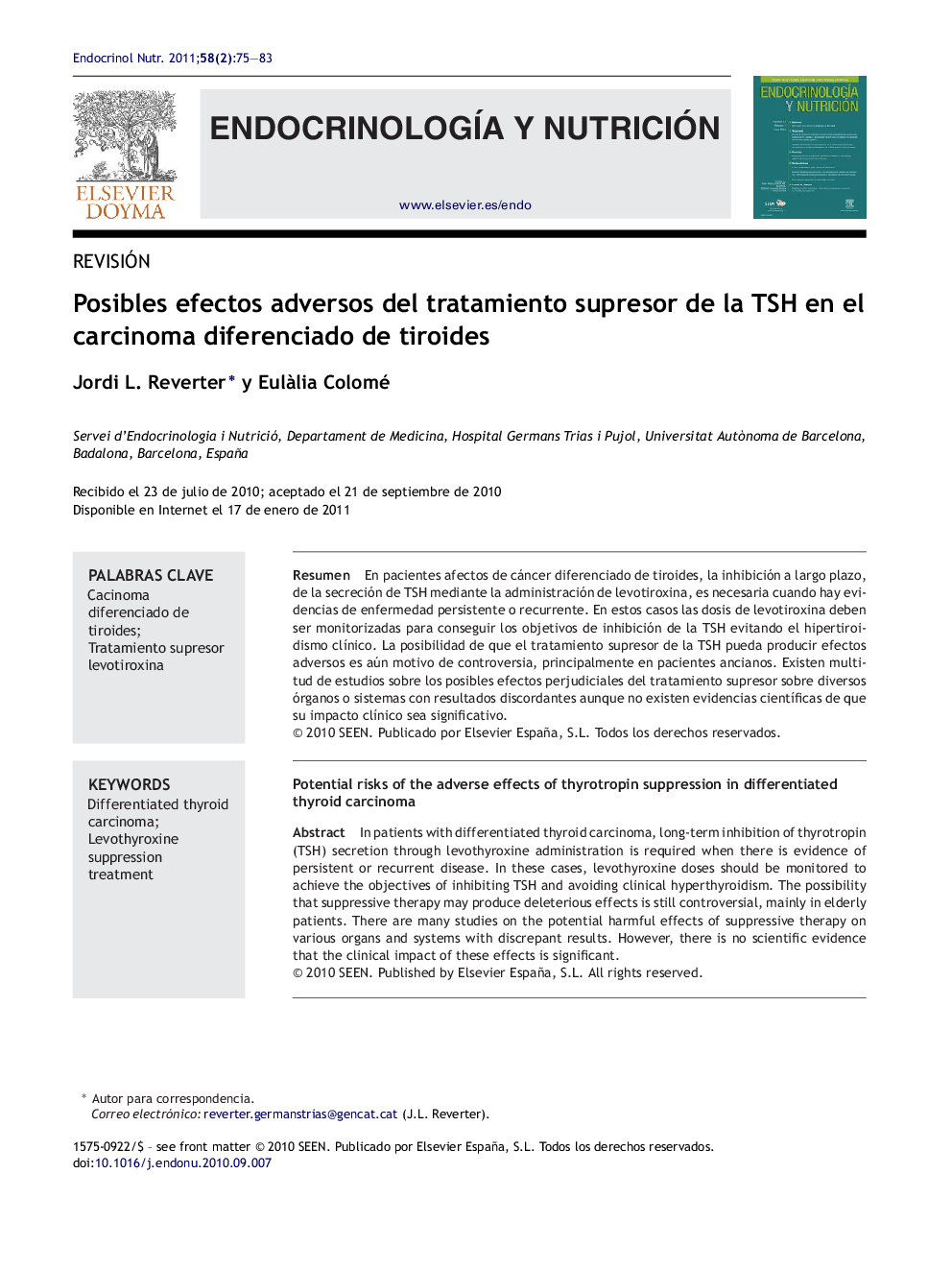| Article ID | Journal | Published Year | Pages | File Type |
|---|---|---|---|---|
| 2774111 | Endocrinología y Nutrición | 2011 | 9 Pages |
Abstract
In patients with differentiated thyroid carcinoma, long-term inhibition of thyrotropin (TSH) secretion through levothyroxine administration is required when there is evidence of persistent or recurrent disease. In these cases, levothyroxine doses should be monitored to achieve the objectives of inhibiting TSH and avoiding clinical hyperthyroidism. The possibility that suppressive therapy may produce deleterious effects is still controversial, mainly in elderly patients. There are many studies on the potential harmful effects of suppressive therapy on various organs and systems with discrepant results. However, there is no scientific evidence that the clinical impact of these effects is significant.
Keywords
Related Topics
Life Sciences
Biochemistry, Genetics and Molecular Biology
Clinical Biochemistry
Authors
Jordi L. Reverter, Eulà lia Colomé,
